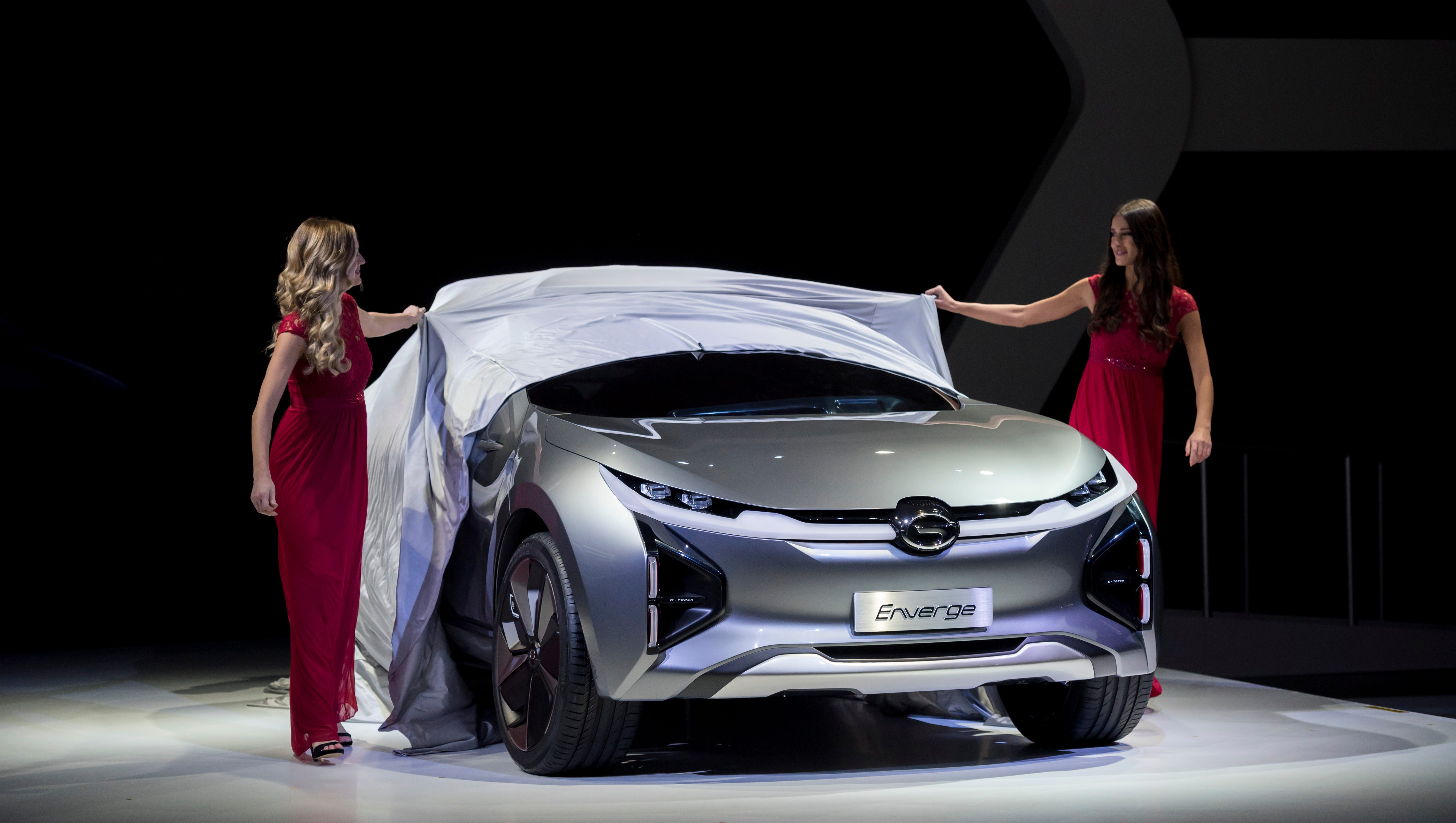Howes:China's GAC poised to go global with eye on U.S.

Detroit — Chinese automakers for years have used the Detroit auto show to tease plans for coming to the American market. This time it may be for real.
Guangzhou Automobile Group Motor Co. Ltd. said Monday it plans to enter the rich U.S. market in the fourth quarter of next year with its GAC GS8, a seven-seat upscale SUV the automaker builds and sells in China under the domestic “Trumpchi” brand.
“Going global is an inevitable path for GAC Group,” Feng Xingya, president of GAC Group and chairman of GAC Motor, said through an interpreter. “Our strategic goal is to become a world-class Chinese brand. We believe the U.S. and Chinese markets are critical. If we can make it in the U.S. we can make it anywhere.”
That may not be as easy as it sounds. Breaking into the demanding American market requires capital, patience and a distribution network that must either be acquired, negotiated and established at great expense. It also demands sterling quality and political savvy in the era of Trump, where foreign imports — especially from China — have particular resonance with the president himself.
GAC’s response? To sell cars and SUVs to American buyers. In an interview with The Detroit News, GAC President Yu Jun said the automaker hopes to sell 100,000 vehicles annually within the first couple of years from its introduction. After that, it would explore building an assembly plant in the United States.
The move has been a long time coming for the Chinese automaker based in southern Guangdong province, the country’s richest. Through its decade-long partnerships with Japan’s Toyota Motor Corp. and Honda Motor Co., GAC has learned vaunted Japanese production methods and earned top-quality scores among Chinese automakers for five years running.
“They have established themselves as the best Chinese automaker,” said Michael Dunne, a former president of General Motors Indonesia who now runs Hong Kong-based Dunne Automotive Ltd., an industry consultancy. “Among Chinese brands, they’re clearly No. 1 in quality. They have been preparing. This is not just a whim that they show up at the Detroit auto show.”
It shouldn’t be surprising, either. Slowing growth in the Chinese market and quickly maturing industry expertise are combining to push local players to serious explore acquisitions, international markets or both. Zhejiang Geely Holdings Group in 2010 acquired Volvo Cars Ltd. from Ford Motor Co., and China’s Great Wall Motors has publicly mused about acquiring pieces of Fiat Chrysler Automobiles NV.
Now comes GAC, a specialist in SUVs also preparing its own electrified entry into the U.S. market. Its Enverge, an electrified compact crossover concept unveiled Monday, targets what the company calls “a new driving experience for energetic young drivers.”
“It’s inevitable that these companies as they mature and they grow in scale, that they will seek global presence,” Peter Fleet, Ford’s president of Asia Pacific, said in an interview. “Not just North America, it’s Europe as well. It’s happening already, and it will accelerate in the same ways that Ford as a global company has every intention to be hugely successful in China.
“It’s kind of obvious business development for them that they will go global. And then longer-run, you will have a set of truly global” automakers, “some which will have had their roots in North America or Europe, and others of which will have their roots in China.”
They’re not alone. Unlike the patient brand-building practiced over decades by Japanese and South Korean automakers, China’s sprawling auto sector is looking for faster opportunities to penetrate the world’s richest markets to win both credibility and customers.
Metro Detroit would be the engineering hub of the GAC’s U.S. operations, making it the 17th automaker to establish its technical center in the home of the American auto industry. GAC is working with Oakland County to identify a site between Novi and Royal Oak that would focus on traditional automotive technologies even as its newly opened R&D facility in Silicon Valley explores electric powertrains and self-driving technologies.
“I think we all need to pay attention to them,” said Matthew Gibb, deputy Oakland County executive overseeing economic development. “They’re the most legitimate shot to enter the U.S. market in the next 18 months of the Chinese automakers. They’re determined to do it.”
Who will help them distribute their metal remains to be seen. GAC executives say they plan to explore dealer distribution options with its longtime partner, FCA, and with independent dealer networks. It also is exploring establishing its own dealer network, an expensive, time-consuming process.
“Certainly it’s our hope to work with FCA in the North American market,” Feng said through a translator. “They are like a mentor to us. So I would hope FCA would work with us to penetrate the U.S. market” — a suggestion two ranking FCA executives downplayed.
Still, after more than a few years of false starts and unfulfilled promises, an automaker from the world’s largest market appears poised to enter the United States and use Detroit engineering chops to get the job done.
Daniel.Howes@detroitnews.com
(313) 222-2106
Staff Writer Ian Thibodeau contributed.
Follow Daniel Howes on Twitter @DanielHowes_TDN, listen to his Saturday podcasts, or catch him at 3 and 10 p.m. Thursdays on Michigan Radio’s “Stateside,” 91.7 FM.